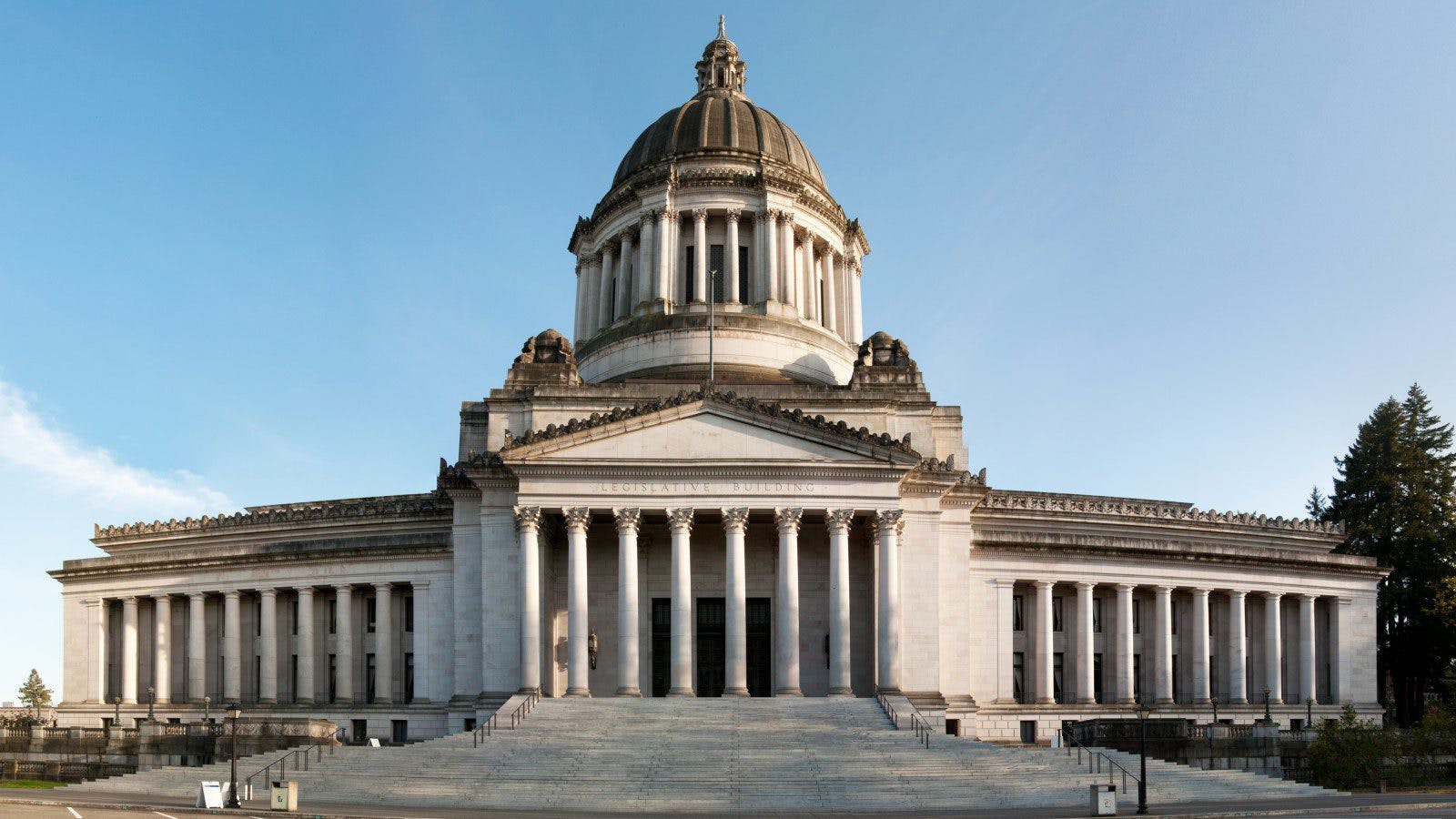Washington State Passes Bill To Study Benefits of Blockchain Tech
Washington state will attract and support new businesses via its Blockchain Work Group bill that aims to study the technology’s benefits

The Capitol building in Olympia, Washington | Source: Shutterstock
- Washington has formally adopted a bill into law that establishes a working group to examine blockchain tech
- The group, comprised of lawmakers, industry experts and government representatives, are to submit their findings to the state’s governor by Dec. 1, 2023
Washington state has formally adopted a bill empowering a working group to examine applications for blockchain technology across a number of industries.
Signed into law by Gov. Jay Inslee on Wednesday, the Washington State Blockchain Work Group bill will bring together a number of blockchain stakeholders to study the tech’s use in finance and banking.
Benefits for computing, real estate transactions, health care, supply chain, higher education and public record-keeping will also be examined by the group.
The group tasked with studying the tech’s viability in those fields include representatives from the departments of commerce and financial institutions. The state’s Consolidated Technology Services agency, as well as lawmakers and industry experts, are also represented.
Ten state senators sponsored the bill, including Sen. Sharon Brown, Sen. Perry Dozier, Sen. David Frockt, Sen. Robert Hasegawa, and Sen. Mark Mullet.
Senate Bill 5544 is attempting “to help attract and support employees and new businesses with a supportive ecosystem.” The bill passed the state’s Senate Environment, Energy and Technology Committee in February before passing through the Rules Committee and making its way to the Senate floor.
“Every day, companies are adopting blockchain technology to improve delivery of services,” Brown said in a statement.
“This new law is a vital first step in creating an environment that is welcoming of new business prospects.”
Despite having received overwhelming bipartisan support, the bill’s journey into law has not been straightforward. Initially vetoed by Inslee in 2020 in another form, the bill has gone through several readings and amendments to pass into law.
The group is expected to host its inaugural meeting by Dec. 1 of this year and submit a report to the governor on its findings by Dec. 1, 2023, after which time the group will be dissolved.
Get the news in your inbox. Explore Blockworks newsletters:
- The Breakdown: Decoding crypto and the markets. Daily.
- 0xResearch: Alpha in your inbox. Think like an analyst.






